Perfect Absolution
In which Norm spins up Warner's new 4K editions of AMADEUS and CONSTANTINE, and finds the divine.
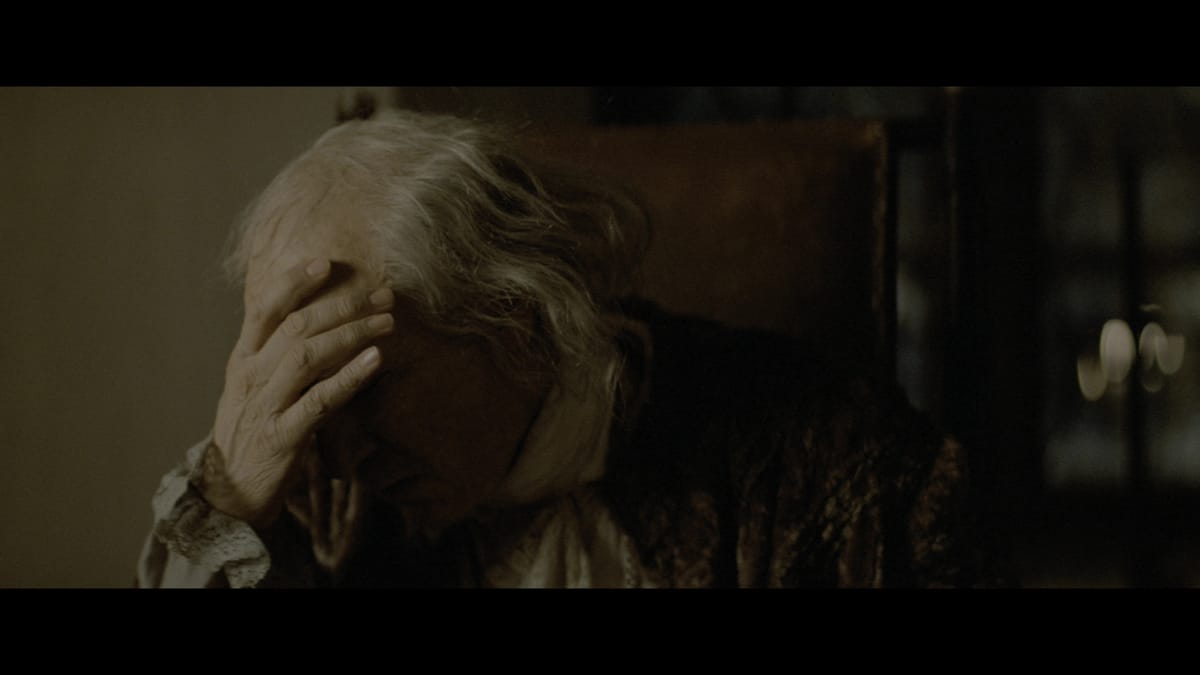
(A quick one, before the Oscars – and no worries if you don’t have time to read it right away.)
What do Amadeus and Constantine have in common, other than the fact that Warner Home Entertainment just reissued both films in splendid new 4K restorations, and that both films are about being so pissed off at God that you’re willing to burn down the world just to make him notice you?
… and to quote the Emperor Joseph II: There it is.
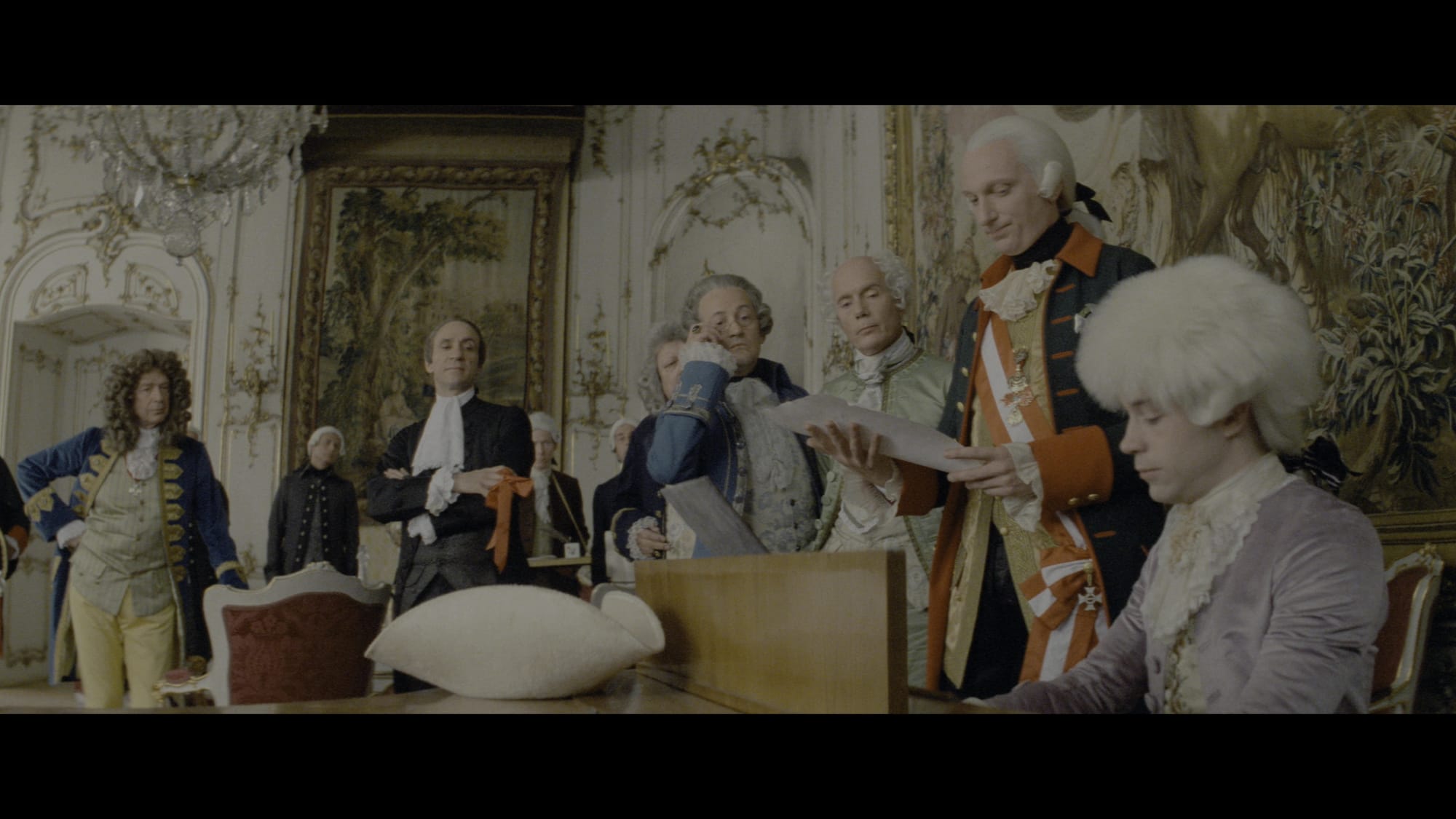
Beyond a shared interest in sacrilege, Milos Forman’s 1984 Oscar-winning adaptation of Peter Shaffer’s beloved stage play and Francis Lawrence’s 2005 riff on DC Comics’ supernatural investigator are very different films. Both are lavishly realized, sure, and populated with powerhouse actors – however unlikely the casting of those actors might have seemed at the time. But one is stately while the other is scruffy. One is epic, the other intimate. And in both cases Amadeus is the latter rather than the former.

Surprised? Don’t be. The messy humanity of Amadeus is its selling point, after all, with Shaffer imagining Wolfgang Amadeus Mozart as a sort of holy fool, pursuing every crass pleasure the world can provide while also delivering the most sacred music to reach the human ear. The story unfolds as the confession of his rival, the Austrian court composer Antonio Salieri, who upon realizing God had granted this uncouth creature the ultimate gift (instead of him) swore to destroy Mozart to spite the heavens.
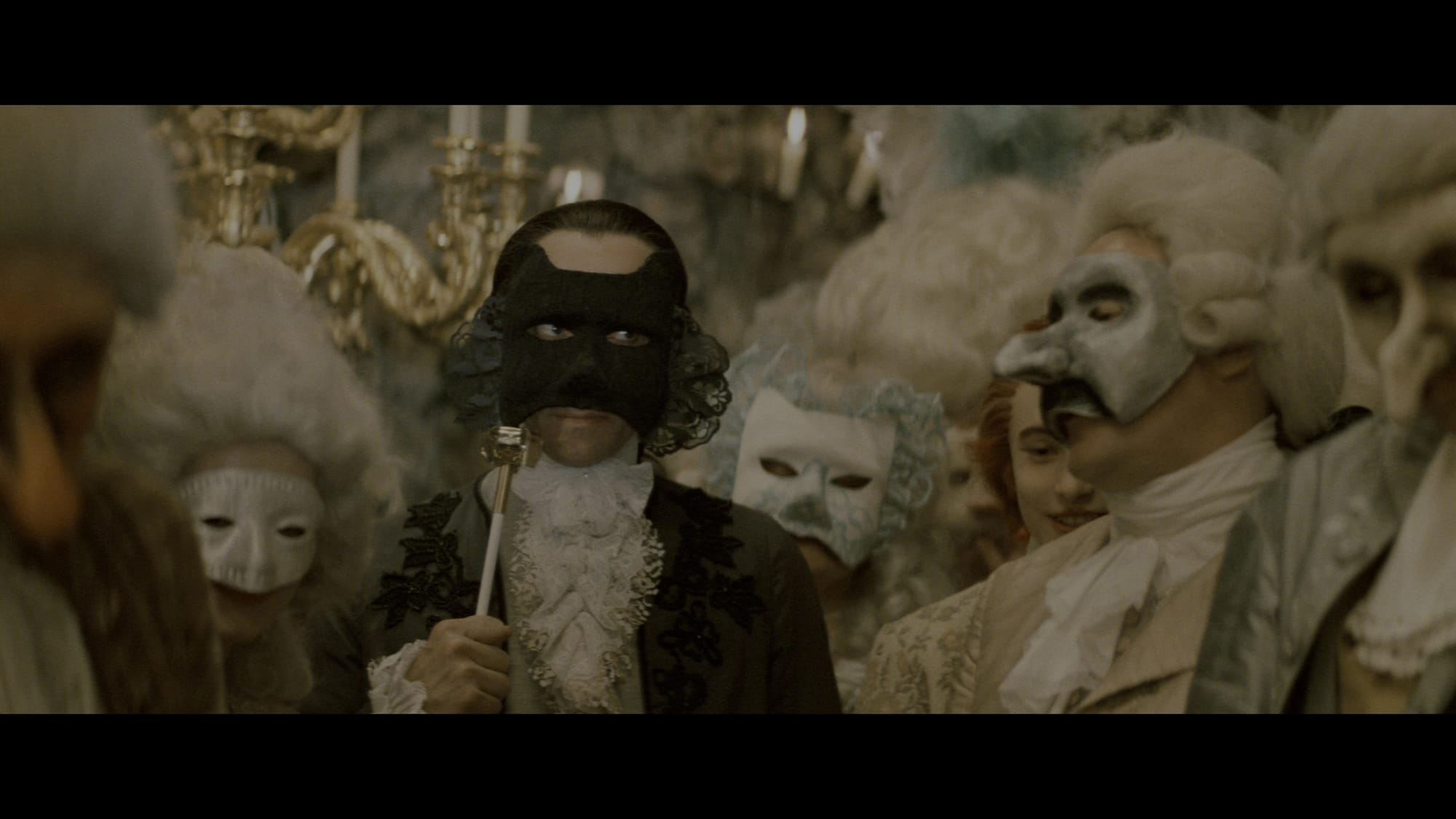
The tragedy, of course, is that the rivalry is entirely one-sided; Mozart might be a buffoon, but he holds no grudge against Salieri. He might not respect the guy’s work, but he doesn’t respect anyone’s. (But why would he? He’s Mozart.)
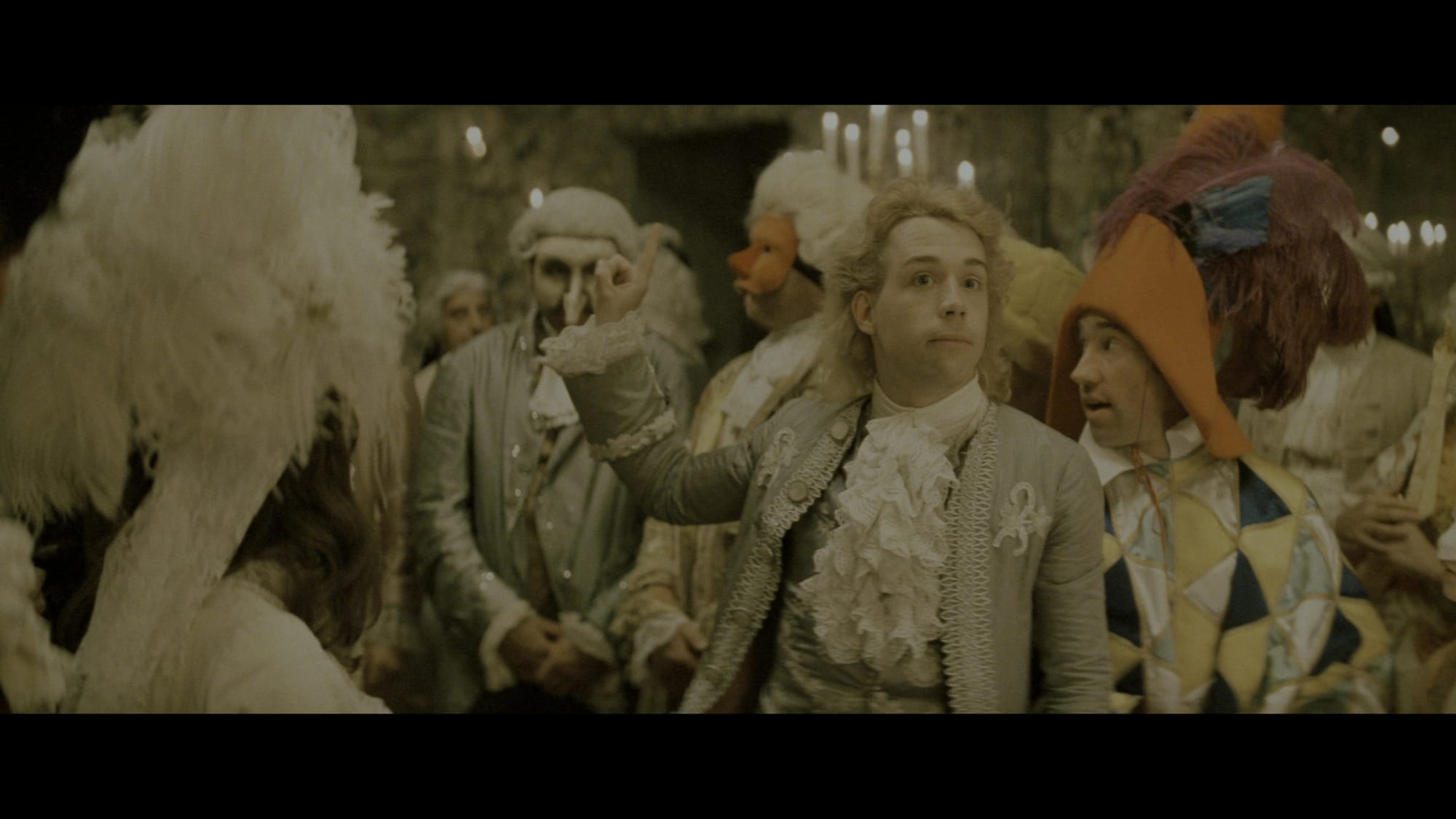
Hulce’s warmth is genuine, and the way Abraham deflects and defers it makes Salieri an endlessly complicated protagonist: He’s the only person who’s sophisticated enough to see Mozart as the genius he is, and refuses his friendship out of jealousy. Returning the affection would have made both their lives so much easier, but in a world of grasping social climbers Salieri is the one honest man. And that makes Amadeus a most profound tragedy, played out in a tangle of relationships between artists and their enablers.
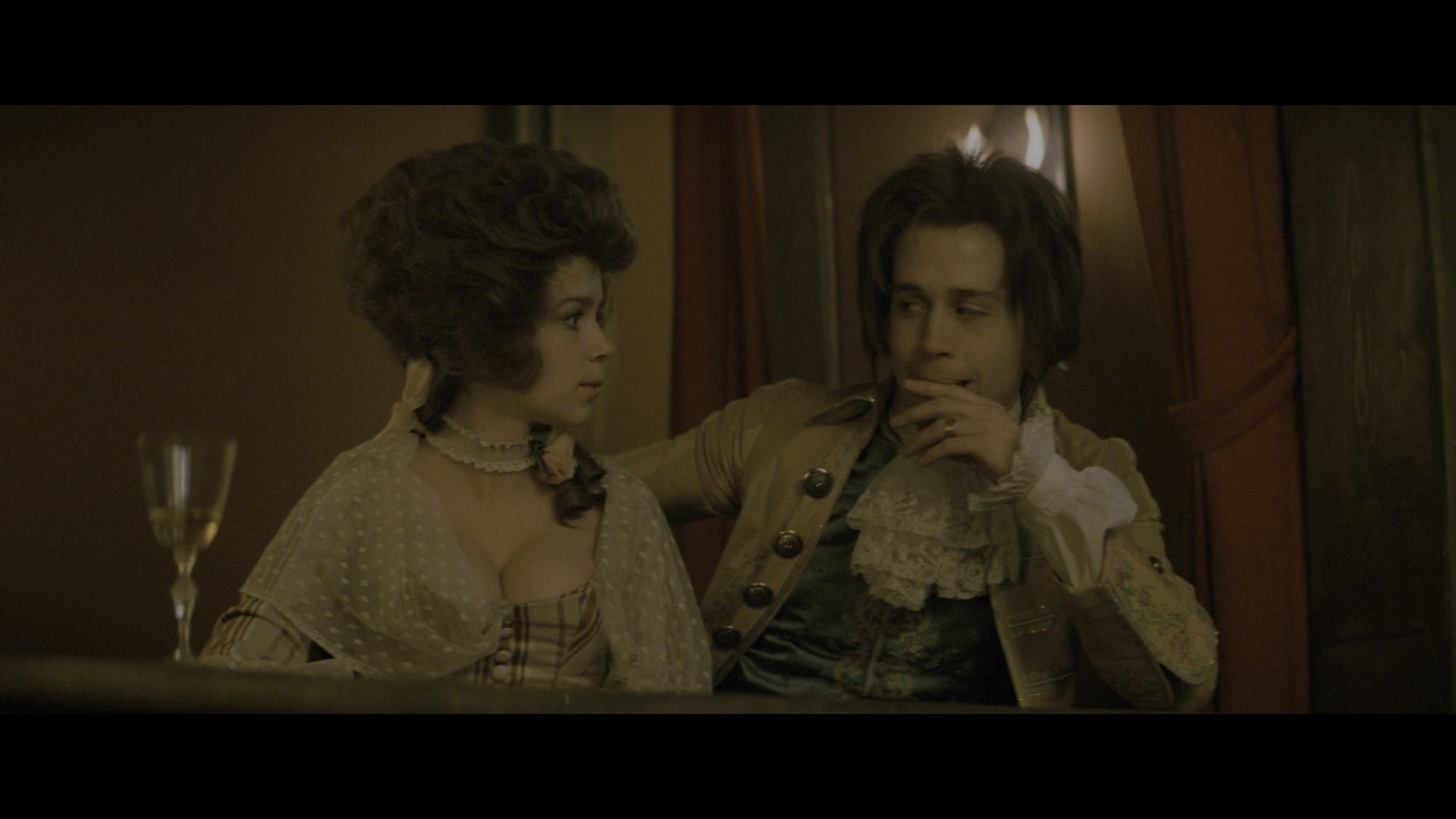
First among them is Elizabeth Berridge as Mozart’s sweet, unsophisticated but ultimately level-headed wife Constanze, whose attempts to manage her husband’s emotional and financial indulgence shift from shrewd to desperate over the course of the story. Roy Dotrice is here as Mozart’s domineering father, whose influence remains long after his death, and Jeffrey Jones is the equivocal Joseph II, who may not have the ear to understand the miracle of Mozart’s music but can be nudged in the right direction.
Another filmmaker might have attempted to open up the play to wow us with scale and cast of thousands; Forman knows better, and keeps Amadeus small and light, sticking to the very personal nature of Shaffer’s play and focusing on a handful of key characters, even when they’re surrounded by scores of people. The music drives it all, as editors Nena Danevic and Michael Chandler cut the film to a wealth of Mozart’s scores, giving the film a propulsive energy that feels like it’s racing from one triumph to another – as if Mozart himself is beseeching us to pretend this isn’t a tragedy.
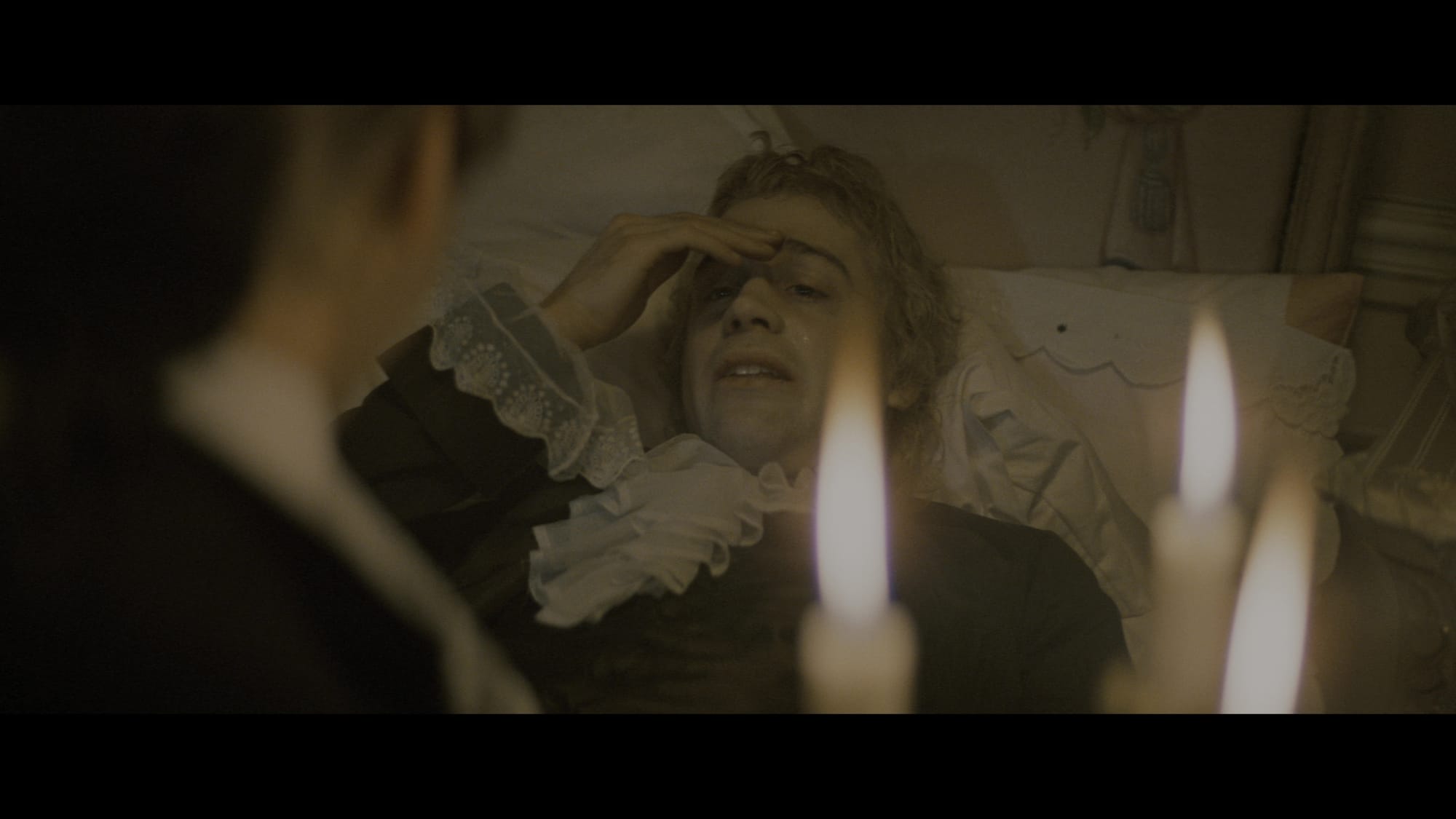
I’m speaking of the original theatrical cut here, which is what Warner has restored and released on this new 4K disc – the first time that version of Amadeus has been available in North America since its initial flipper DVD release in 1997. Every subsequent version has been the three-hour “Director’s Cut” which Forman created in 2001, which he insisted was the cut he wanted to release in 1984 before producer Saul Zaentz convinced him to trim the movie further in the hopes of drawing a larger audience. (Not only can you get four shows a day with a 160-minute movie; you also saved a few hundred bucks per print struck if it ran eight reels instead of nine.)
The longer cut spent twenty years as the only version in circulation, first on DVD and then Blu-ray. It’s very good, but it’s not the masterwork that the theatrical cut is. The two key scenes are an early moment between Salieri and Constanze that establishes (and certainly justifies) her loathing of him, and an assignation between Mozart and the opera singer Catarina Cavalieri (Christine Ebersole), for whom Salieri carries a creepy torch; those scenes aren’t entirely superfluous, but they don’t need to be there, and their inclusion slows the story down unnecessarily. To coin a phrase, the director’s cut simply has too many notes.
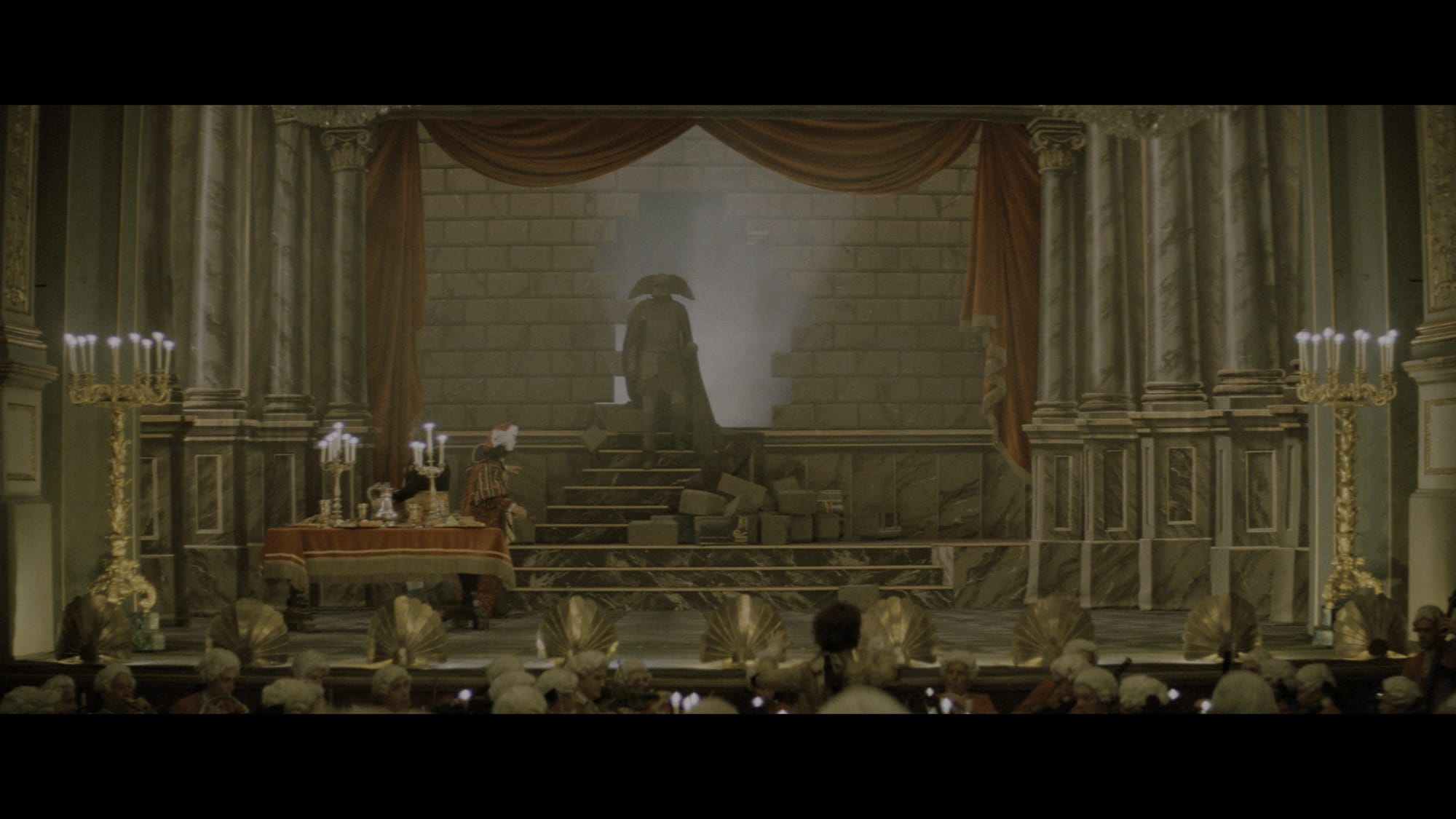
It’s also worth pointing out that Forman, Danevic and Chandler devised the Mozart underscore after cutting the three-hour version, meaning the director’s cut doesn’t have the same wild energy. It feels stuffier and more prestigious; it’s trying too hard to make its points. It’s the film Salieri would have made. Now, at last, Wolfie’s version is back.
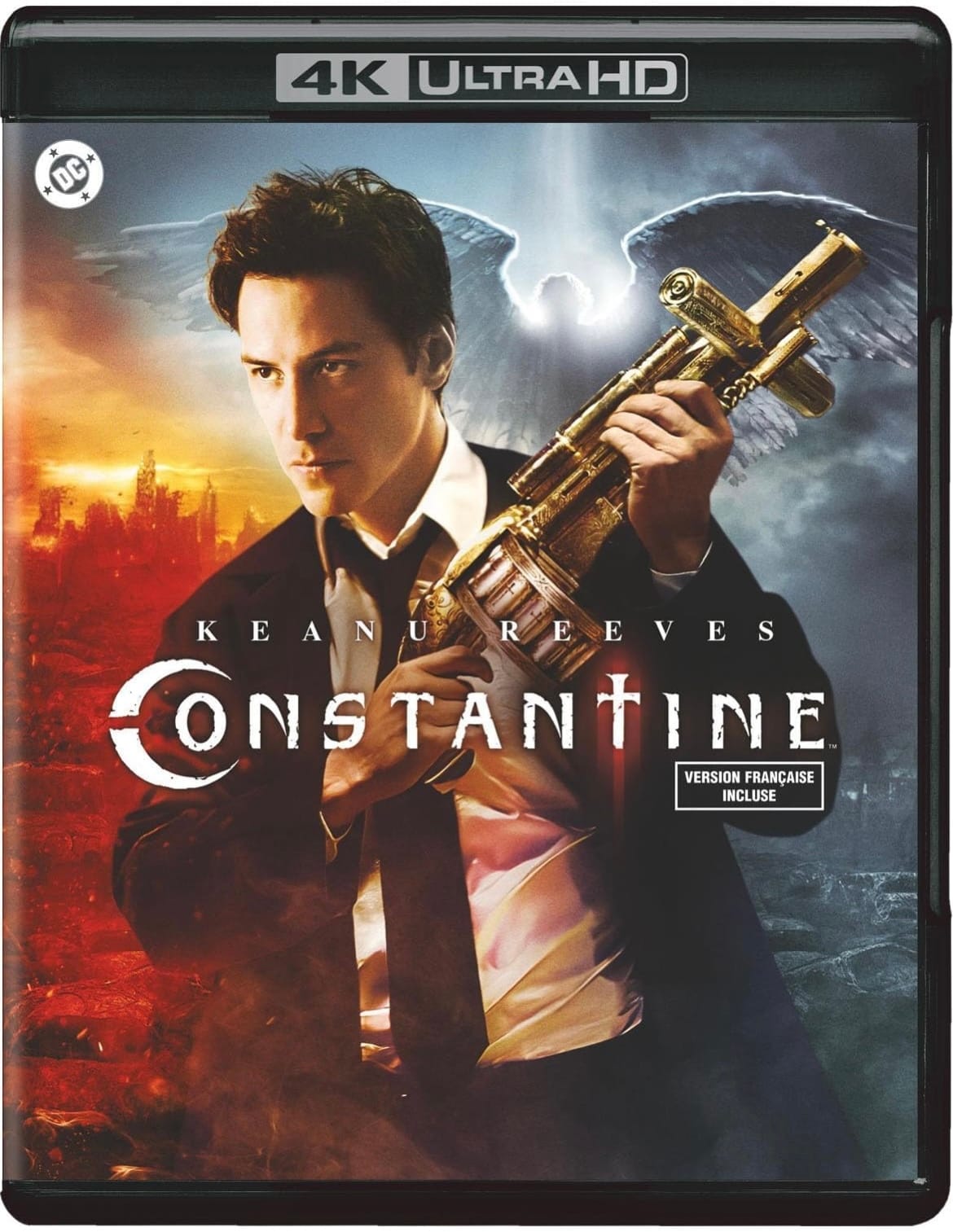
There are no radical changes to Lawrence’s Constantine, which was trimmed of its narrative fat early in post-production; some 18 minutes of deleted and extended scenes have been included on every DVD and Blu-ray release, and the low-rez quality of that material is the most unsettling thing about them. (Well, that and seeing the then-unknown Michelle Monaghan play the same dialogue with Keanu Reeves’ cranky Constantine twice – once in bed, and once in Papa Midnite’s club – as the production tried to find a way to keep her in the finished film.)
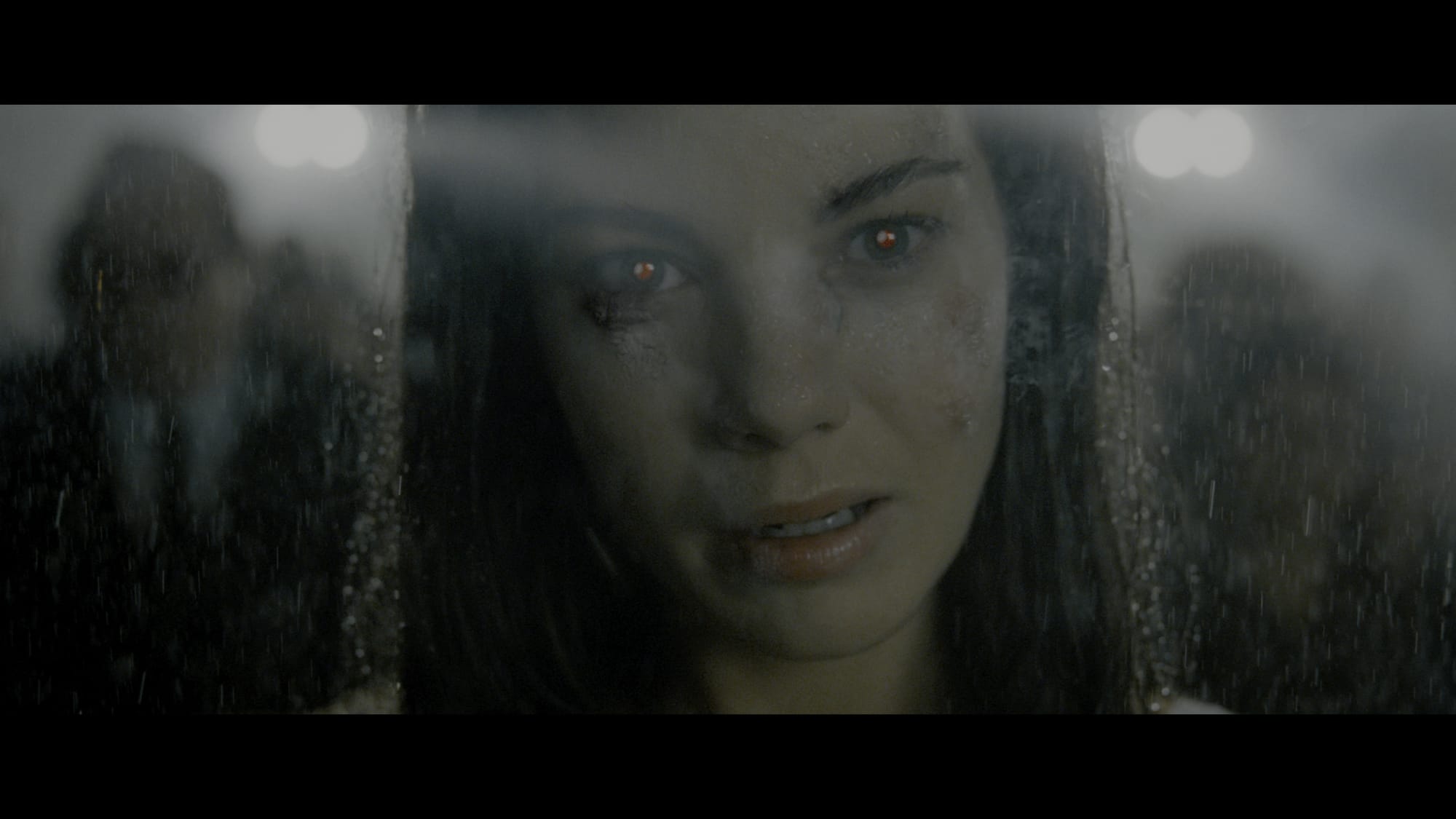
And yet Constantine still merits re-evaluation, if only because it’s so much better than any of us gave it credit for at the time. Reeves was fresh off the Matrix sequels, and people were resistant to seeing him punch his way through another eye-popping action thing; those of us familiar with the DC character of John Constantine from various Hellblazer and Swamp Thing appearances just wanted to know why the guy wasn’t blond. The answer is obvious now, of course: He’s Keanu Reeves.
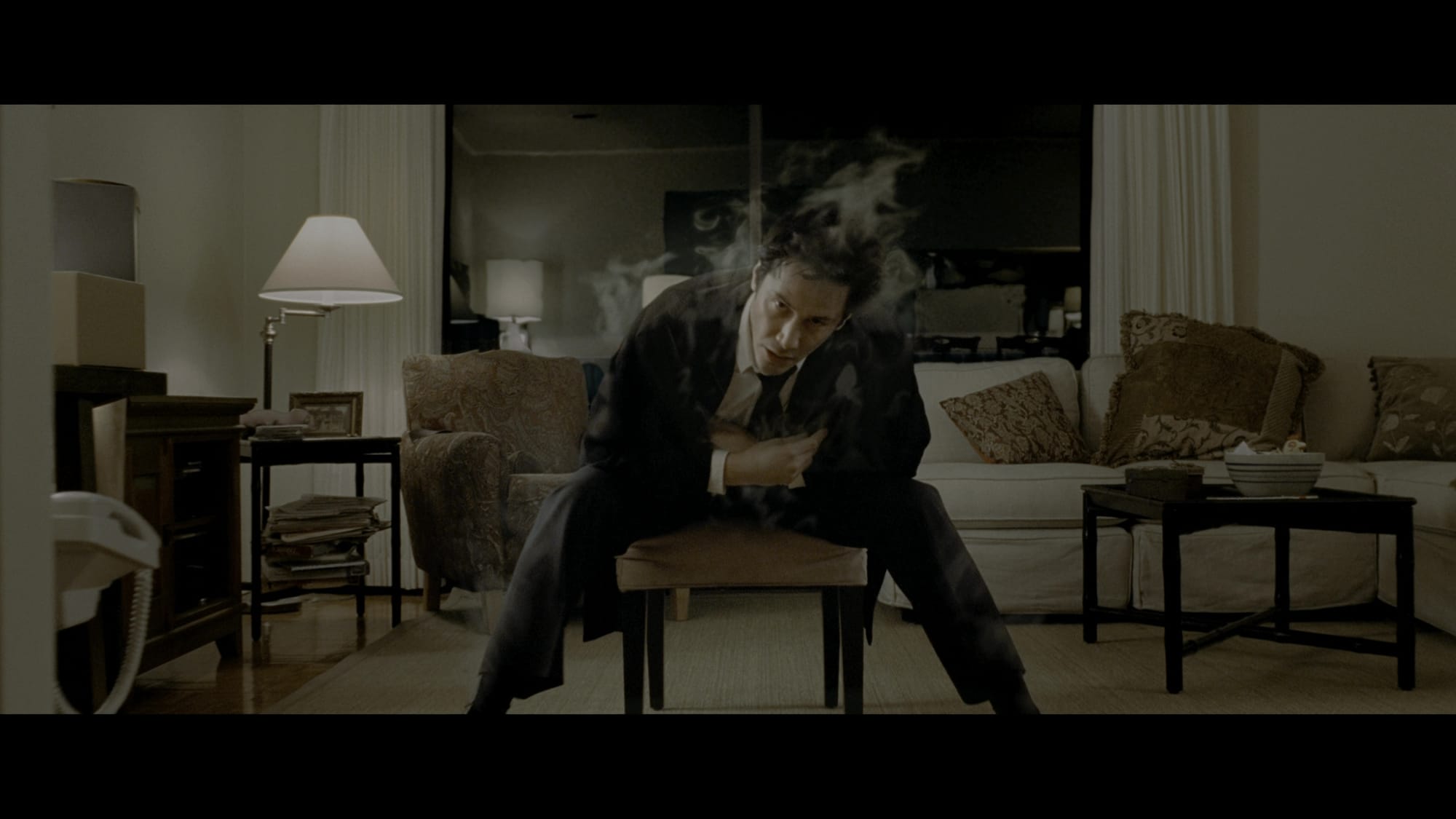
And in the rear view, Constantine is a really good Constantine movie. Lawrence and screenwriters Kevin Brodbin and Frank Cappello built a proper film-noir universe for the comic’s cranky crusader to stomp through, with Reeves’ chain-smoking antihero freshly diagnosed with terminal lung cancer, and knowing he’s going to Hell when he dies. He’s a disillusioned detective who’s looking for redemption, and that’s a melody we recognize right away.
Constantine isn’t the first supernatural noir – there’s Curse of the Demon and Clive Barker’s Lord of Illusions and Cast a Deadly Spell (and its even less-remembered sequel Witch Hunt) – but it’s definitely the most ambitious. Lawrence treated his first feature as an opportunity to impress, encouraging DP Philippe Rousselot to establish a striking compositional style and fill the frame with eye-popping visuals. Lawrence also used the studio’s reach to cast the hell out of the thing: Think Tilda Swinton’s great as a condescending Archangel Gabriel? Check out Peter Stormare’s slavering Lucifer! Djimon Hounsou plays the aforementioned Papa Midnite, and Pruitt Taylor Vince, Shia LaBeouf and Gavin Rossdale are also around!
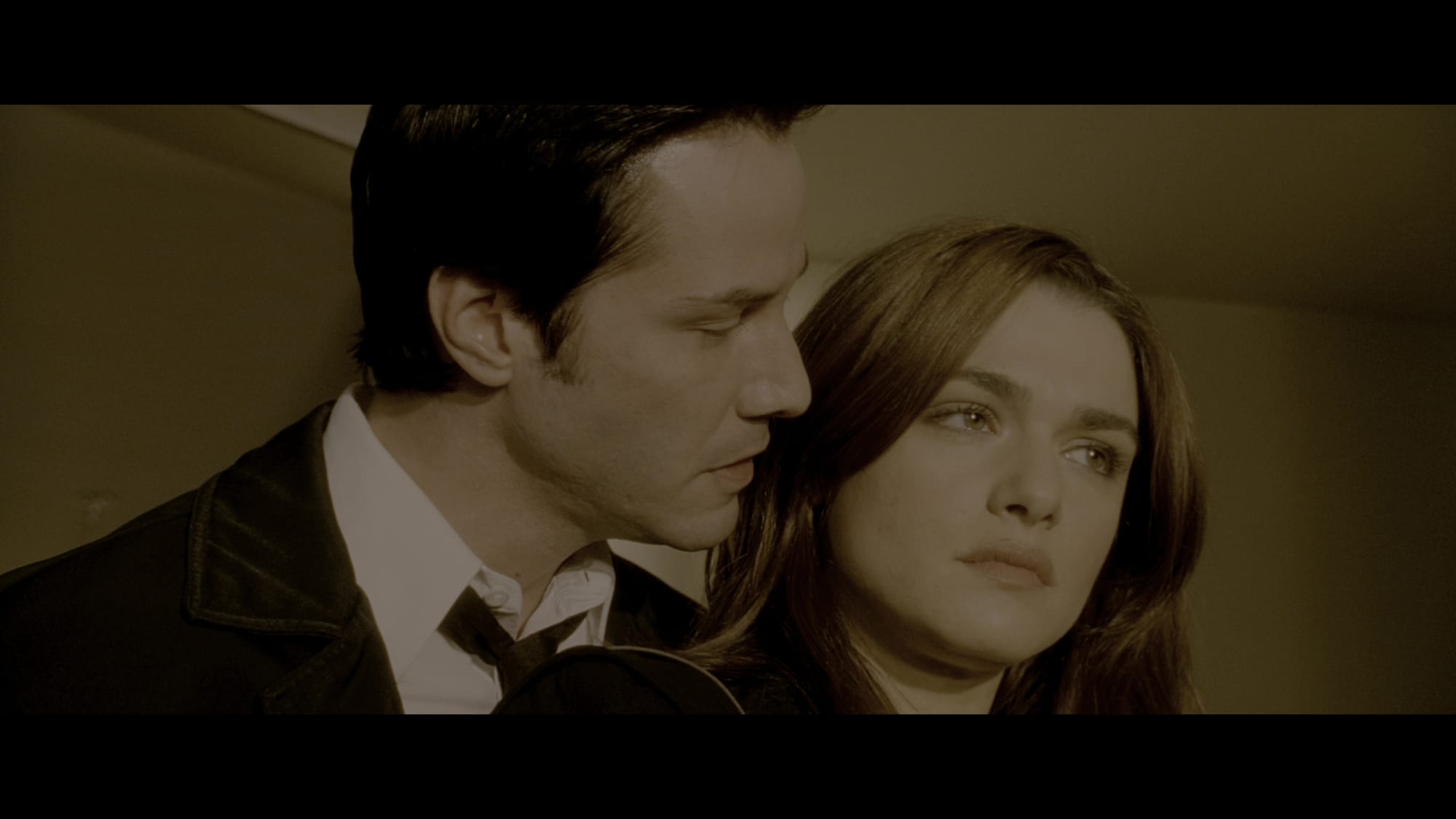
But the big deal, other than Reeves, is Rachel Weisz – the same year she won an Oscar for The Constant Gardener – in the dual role of a Los Angeles detective and the estranged twin sister whose death sets the plot in motion. Weisz doesn’t get nearly enough credit for this performance; she’s the wide-eyed Neo to Reeves’ impatient Morpheus, the audience’s guide to an impossible world just behind the veil of reality, and she plays it with a vulnerability that eventually gets through Constantine’s armor of cynicism and rally for one more battle. Like I said: We know the melody. But it’s a good song.
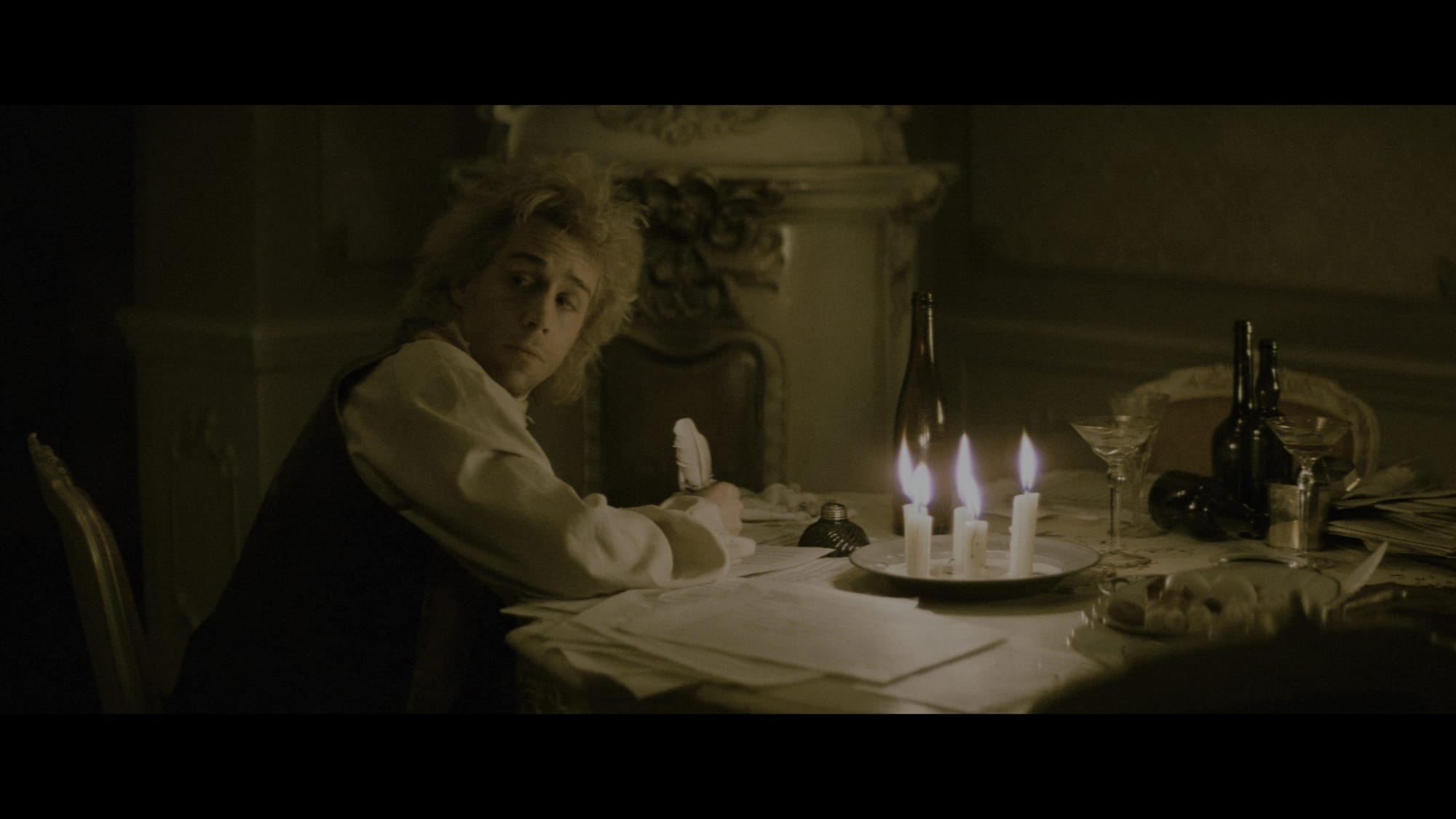
Warner has treated both Amadeus and Constantine as precious artifacts, with faithfully rendered UHD restorations that present the films as though they’re brand new. Aesthetically, they’re a study in contrasts: Amadeus was shot as unfussily as possible, and the HDR grade is appropriately gentle. Candlelights glow rather than flare, and the dashes of color in Mozart’s wigs are allowed to remain subtle. Fine detail is exceptional throughout: Even when the shadows in Salieri’s asylum cell are inky and deep, we can still appreciate how effectively Dick Smith’s age makeup leaves Abraham withered by years of self-loathing, consumed from within by the knowledge of his own mediocrity.
Constantine, on the other hand, is alive with light and color, the UHD master turning Rousselot’s splash-page aesthetic up to 11. You can almost feel the winds of Hell, and I had to resist the urge to pause and zoom in on all the weird eldritch details in the movie’s various libraries and archives. In some other timeline, Constantine was a massive hit that sent the burgeoning superhero genre in a wilder, more ambitious direction; Warner’s 4K release finally gives it the respect it always deserved.
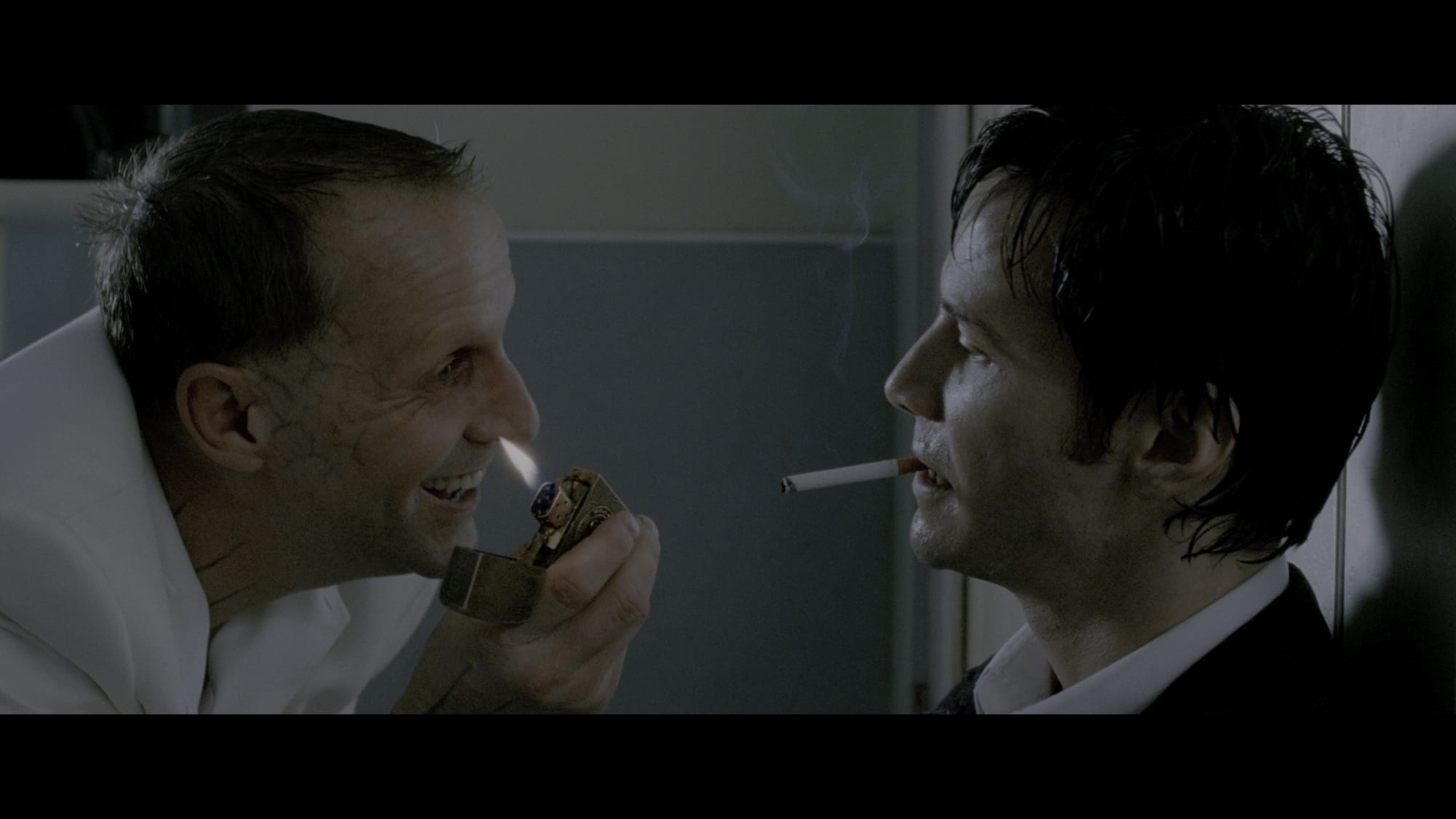
Both discs also add new retrospective featurettes that play like well-deserved victory laps. “Amadeus: The Making of a Masterpiece” is a webcam reunion for co-stars Abraham, Hulce, Ebersole and Simon Callow and production designer Patrizia Von Brandenstein, who – along with music historian Jon Burlingame – share stories from the production and remember the late creators Forman and Shaffer. (There’s some unavoidable overlap with “The Making of Amadeus,” the hour-long doc produced for the release of the director’s cut in 2002 and which is included here as well.)
On the Constantine disc, “Two Decades of Damnation” reunites Reeves and Lawrence in a studio and lets them nerd out over what they accomplished, with additional input from co-star Max Baker, producer Akiva Goldsman and production designer Naomi Shohan. There’s genuine warmth here, and Reeves and Lawrence are clearly proud of the film and its gradual reclamation by comics fans. Unmentioned but clearly contributing to that reclamation is Matt Ryan’s rather more extroverted version of the character in various television series, including NBC’s short-lived Constantine and The CW’s DC’s Legends of Tomorrow. Maybe it’s heresy, but Reeves’ relatively grounded take strikes me as a lot more fun.
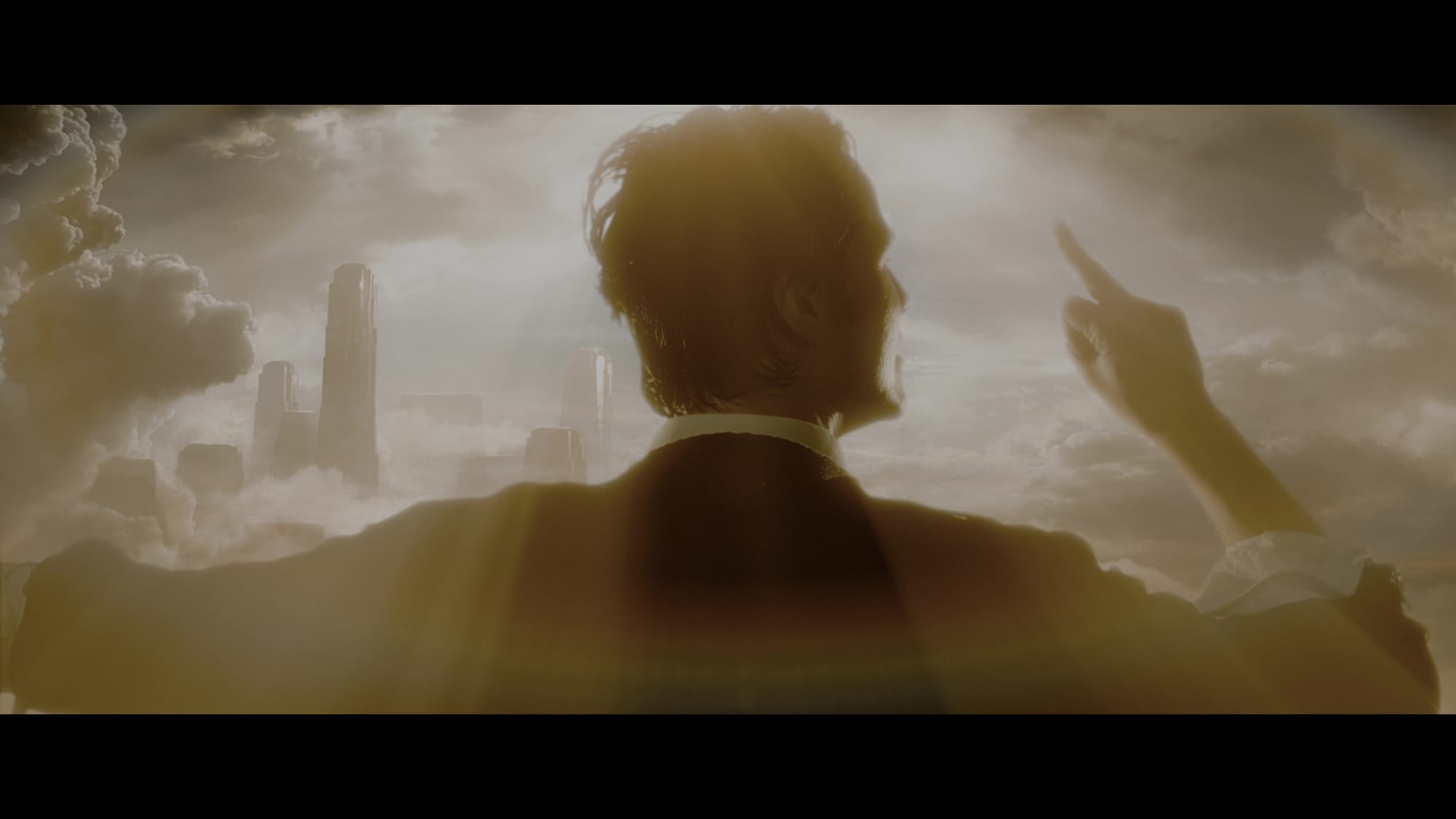
Warner’s Constantine 4K also packs in the supplements produced for the previous DVD and Blu-ray editions – the aforementioned deleted scenes, two audio commentaries and more than a dozen production featurettes. The only thing missing is the music video for A Perfect Circle’s “Passive,” but that’s what YouTube is for.
Amadeus and Constantine are now available in 4K from Warner Home Entertainment. Treat yourself. Amd happy Oscar night!
Up next: Ridley Scott tries to recapture The Glory That Was Rome with Gladiator II. Stand fast.
